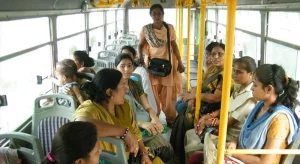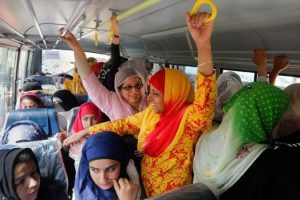‘Buses Don’t Stop For Us, We Are Shamed For Free Travel’: Delhi’s Women Commuters
Up to 80% women complain that buses drive past them and they have to frequently deal with snide remarks about freeloading
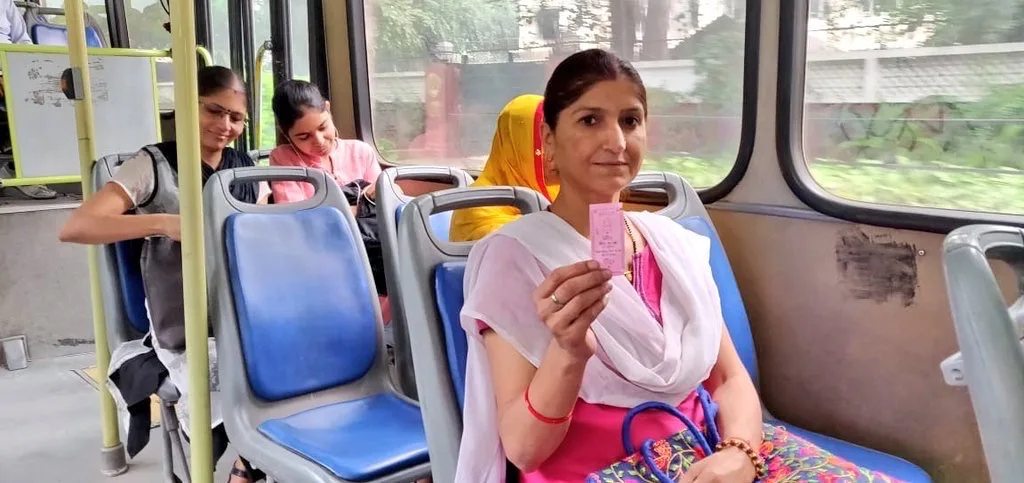
The transformative free bus ride scheme for women launched four years ago by the Delhi government is often ineffective because of gender discriminatory practices, says a report released on Tuesday by Greenpeace India, an NGO focussed on environmental issues.
Up to 80% of the 500 women interviewed for the report said that buses drive past them without halting at stops. And at least 54% complained that they routinely face humiliating remarks from bus crews and male passengers for availing the fare-free “pink tickets”.
The report, “Halt for Women Bus Users in Delhi”, is an assessment of the free travel facility scheme launched in October 2019 by the Delhi government for women commuters on Delhi Transport Corporation (DTC) buses and cluster buses run for the city’s multi-modal transit system.
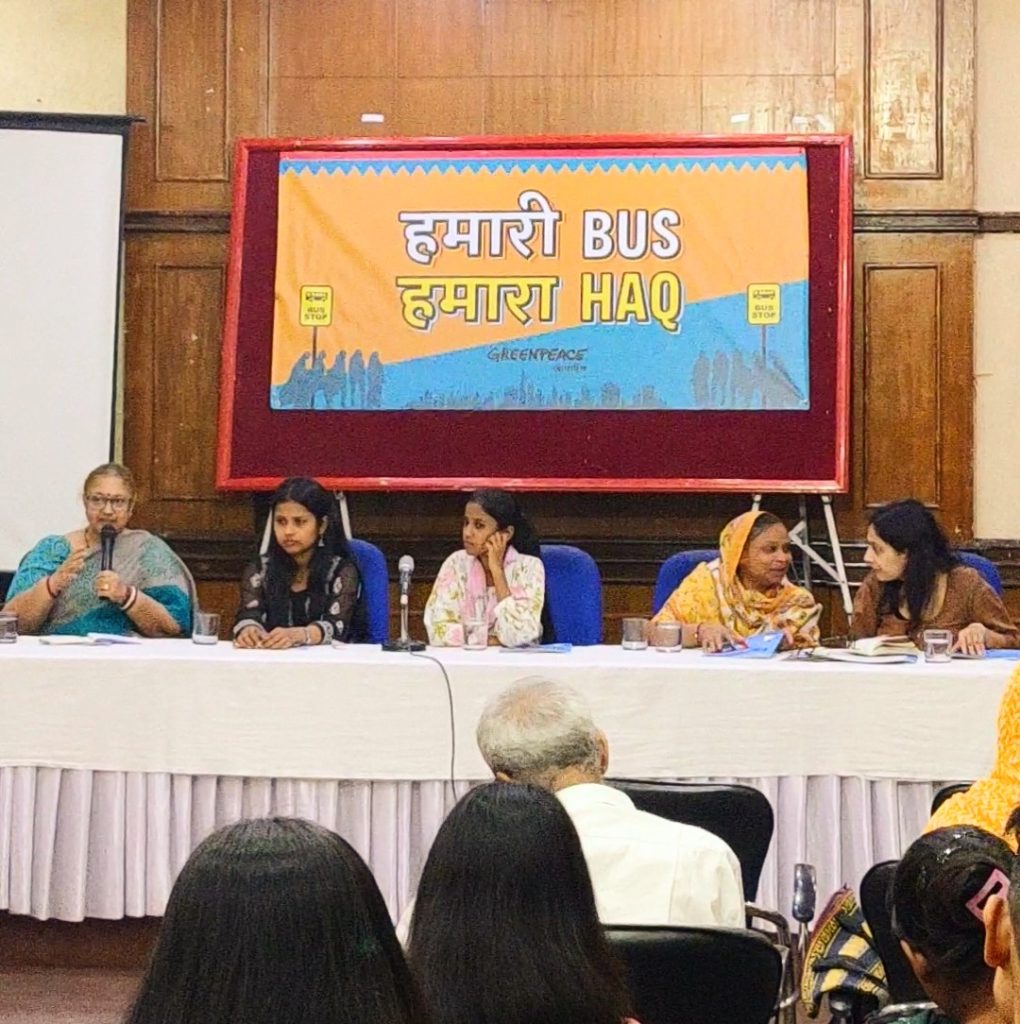
Since its launch, DTC buses have witnessed an increase in female ridership – from 25% in 2020-21 and 28% in 2021-22 to nearly 33% in 2022-23 so far. Over 30 million women availed of the free travel scheme in 2021-22, said former deputy chief minister Manish Sisodia presenting the status report of the Outcome Budget for 2021-22.
The scheme was meant to promote easy access to public transport for women and increase their mobility. Easy access to public transport is more critical in the lives of women than men, as we reported in this story reported from Punjab.
“To women, improved mobility means freedom—an avenue to access knowledge, information, education, and most importantly, the freedom to make decisions for themselves,” said Geetha Nambisan, a gender and inclusivity consultant at the Housing and Land Rights Network.
States like Tamil Nadu, Punjab, Maharashtra and Karnataka have also announced similar free bus ride schemes. While Tamil Nadu and Karnataka and Punjab provide free bus travel, Maharashtra offers a 50% subsidy on fare to the women commuters. The schemes have been successful in increasing women’s use of buses, and as we found in Punjab, have opened up employment and leisure opportunities. This report from Karnataka talks of the sweeping impact of free bus travel on opening up leisure opportunities for poorer women. However, the schemes fail to take gender minorities into consideration.
As Behanbox has reported earlier, these schemes suffer for want of planning, resources, budgets and effective implementation. For instance, in Punjab, women complain of overcrowded buses, long waiting times and a tendency among bus operators to avoid stops with a large number of women commuters. The free ride scheme itself is not listed under the gender budget for the year 2023-24 and according to The Tribune, the scheme might be discontinued or restricted to weekends given its financial non-viability.
However, the Delhi government, in its 2023-24 budget announced an increased allocation of funds on women-specific schemes to Rs 5,740 crore, including free bus tickets to women in government buses.
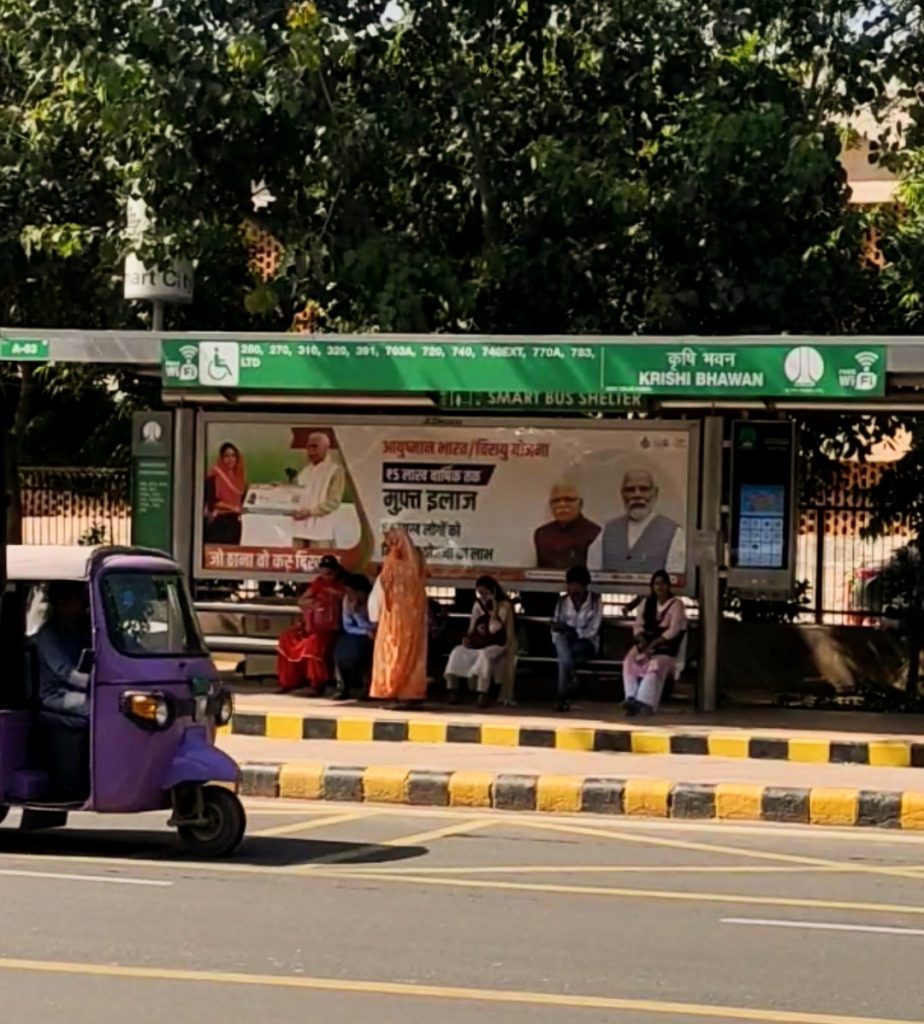
Snubbed, Humiliated
During the press conference, Jahanara, a waste picker from Seemapuri, recollected instances when taking a bus late at night made for a harrowing experience. “I was late at work and it was about 9 PM. None of the buses stopped for me. I stood at the bus stop, feeling hapless, harassed by men on the street. At last, two women came to help me and we got onto a bus. I thought I was finally on my way home but even then I had to bear insulting remarks from the bus staff and co-passengers for travelling free,” she said.
The Greenpeace India report estimated that about 29% faced these instances frequently while 50 % faced them occasionally.
The Delhi government’s free bus travel policy was framed for women like Jahanara but its implementation has failed her, said the participants at a panel discussion that followed the release of the report. The report was prepared by Greenpeace India in association with the Public Transport Forum, a collective of 15 NGOs.
The discussion panel included Vanitha Sreedhar, a co-founder of a Delhi-based NGO, Environics Trust, that works on climate solutions and human rights, Zeba and Jahanarah, frequent bus users from Sunder Nagri and Seemapuri in North-East Delhi, Shalaka Chauhan, an independent researcher and a member of the Main Bhi Dilli Campaign that advocates great citizen involvement in Master Plan 2041 and Avani Goyal, the co-author of the report.
“Such experiences not only hamper women’s access to public transport but also create an unwelcoming and unsafe environment. We have often seen buses not stop if the bus shelter has only women waiting,” said Nitu Thakur, one of the researchers in a statement.
Women complained that they are treated like freeloaders by the bus staff. Avni Goyal pointed out that the discrimination faced by women travellers in public transport systems is a reflection of a larger problem that needed to be addressed with gender sensitisation and gender-affirmative action, she said.
Waste Pickers, Women Hawkers Shunned
Shalaka Chauhan, an urban researcher Main Bhi Dilli campaign, pointed to the class and caste discrimination women face in buses. Women waste pickers, for instance, are not allowed to carry their sacks into buses because both the bus crew and passengers complain about their lack of “purity”, she said. And women hawkers, who travel from the city’s periphery to its central markets with their wares, are often taunted and given gratuitous advice to take auto rickshaws instead. A volunteer involved in the research also noted that a few bus workers insisted on “extra charge” for carrying baggage without providing a receipt for it.
“A street vendor has to pay Rs 200 to transport her products if they take an auto-rickshaw. Domestic workers labour 365 days and the lack of transportation means that they have to walk everywhere regardless of heat waves, cold waves and rains. This affects their health adversely and also deters them from working,” said Chauhan.
Dealing With Transphobia
The report does not include the difficulties faced by trans persons while using the public transport system. A recent petition by a trans woman spoke of the “trauma and agony” they faced while commuting by DTC buses because they were not recognised as third gender and were deprived of the free pink tickets. This comes after Delhi High Court had directed DTC to decide the representation for legally recognising them as the third gender in bus tickets issued in DTC buses and to provide them with free tickets for travelling within four months.
Mobility is a challenging issue for the trans community, said Rudrani Chhetri, founding member of Mitr Trust, a Delhi-based NGO focussed on creating safe and inclusive environments for LGBTQIA+ persons.
“Most people encounter trans women only when they are begging at traffic signals so if we get into a bus the assumption is that we are there to beg,” she said. “We can’t claim seats reserved for women and sitting with men is unsafe. If we complain of discomfort, we are mocked. So, most of us take auto-rickshaws or Ola/Uber cabs if we can afford it.”
Similar issues have been faced by the trans community in Maharashtra where the government launched a Mahila Samman Yojana guaranteeing women a 50% concession on ticket fares on public transport buses. While the scheme has reportedly increased women’s mobility in the state but it has been discriminating against trans women.
Induct Female Crew, Women Suggest
The report also shared recommendations from respondents on how best to deal with their grievances. Up to 84.8% women bus users support the idea of inducting more women bus drivers and conductors into the fleet. Additionally, 91.6% of the surveyed women believe that implementation of dedicated ‘women-only’ bus services across Delhi could make transportation accessible and safer for women.
Shweta Raj, a freelance journalist on the panel, pointed out that the revival of the ‘women-only’ bus scheme would be welcomed by women commuters, especially those who work late shifts.
The report also recommended a monitoring system at bus halts, improved lighting around stops, a dedicated complaints redressal system, and increased participation of women in the transportation sector workforce. “Free bus transport, while good service, is not enough. The state needs to actively empower women and support them in their livelihoods with different mechanisms,” Chauhan said.
We believe everyone deserves equal access to accurate news. Support from our readers enables us to keep our journalism open and free for everyone, all over the world.
